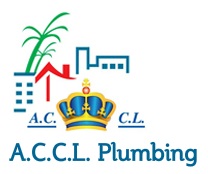As the world grapples with the challenges of water scarcity and sustainability, greywater recycling systems have emerged as a viable solution for reducing water waste and conserving this precious resource. Greywater, which accounts for a significant portion of household wastewater, can be collected and reused for various purposes, reducing the demand on potable water supplies. In this article, we’ll explore the benefits and mechanics of greywater recycling systems.
What is Greywater?
Greywater is the wastewater generated from sinks, showers, baths, and washing machines. It’s distinct from blackwater, which comes from toilets and kitchen sinks, and is typically more contaminated. Greywater is relatively clean and can be reused for irrigation, flushing toilets, and other non-potable purposes.
Benefits of Greywater Recycling Systems
1. Water Conservation: Greywater recycling systems can significantly reduce water consumption, especially in areas where water is scarce.
2. Reduced Water Bills: By reusing greywater, households can lower their water bills and save money.
3. Environmental Benefits: Greywater recycling systems can reduce the amount of wastewater sent to treatment plants, decreasing the energy required to treat and process wastewater.
4. Increased Water Security: Greywater recycling systems can provide a reliable source of water for irrigation, toilet flushing, and other non-potable uses.
How Greywater Recycling Systems Work
1. Collection: Greywater is collected from sinks, showers, and washing machines through a separate plumbing system.
2. Treatment: The collected greywater is treated to remove contaminants and pathogens, making it safe for reuse.
3. Storage: Treated greywater is stored in tanks or reservoirs for later use.
4. Reuse: Greywater is reused for irrigation, toilet flushing, or other non-potable purposes.
Types of Greywater Recycling Systems
1. Simple Systems: Simple systems collect and reuse greywater without treatment, often using a 3-way diverter valve to direct greywater to irrigation systems or other non-potable uses.
2. Biological Systems: Biological systems use natural processes, such as plants or microorganisms, to treat greywater.
3. Mechanical Systems: Mechanical systems use filters, pumps, and other equipment to treat and reuse greywater.
Considerations and Challenges
1. Regulations: Greywater recycling systems must comply with local regulations and health standards.
2. Maintenance: Regular maintenance is necessary to ensure the system operates effectively and safely.
3. Public Perception: Some people may be hesitant to adopt greywater recycling systems due to concerns about water quality or aesthetics.
Conclusion
Greywater recycling systems offer a sustainable solution for reducing water waste and conserving this precious resource. By collecting and reusing greywater, households can reduce their water consumption, lower their water bills, and contribute to a more environmentally friendly lifestyle. As the world continues to grapple with water scarcity and sustainability challenges, greywater recycling systems are an important tool in the quest for a more water-efficient future.

